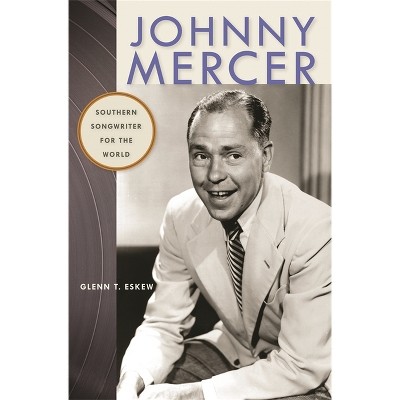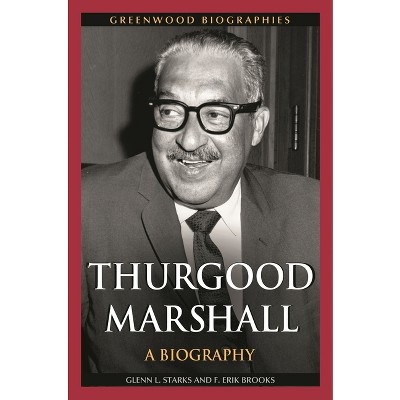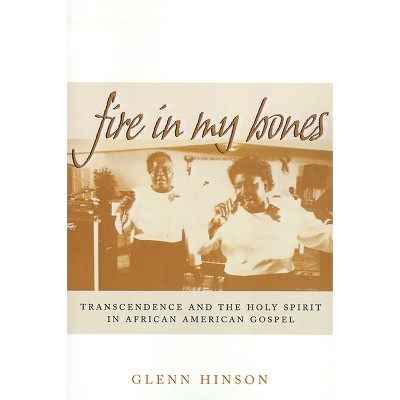$47.50 when purchased online
Target Online store #3991
About this item
Highlights
- Birmingham served as the stage for some of the most dramatic and important moments in the history of the civil rights struggle.
- About the Author: Glenn T. Eskew is associate professor of history at Georgia State University.
- 456 Pages
- Social Science, Ethnic Studies
Description
About the Book
Historian Glenn Eskew describes the changing face of Birmingham's civil rights campaign, from the politics of accommodation practiced by the city's black bourgeoisie in the 1950s to local pastor Fred L. Shuttlesworth's groundbreaking use of nonviolent direct action to challenge segregation during the late 1950s and early 1960s. Maps, notes, bibliography, index. 25 illustrations.Book Synopsis
Birmingham served as the stage for some of the most dramatic and important moments in the history of the civil rights struggle. In this vivid narrative account, Glenn Eskew traces the evolution of nonviolent protest in the city, focusing particularly on the sometimes problematic intersection of the local and national movements.Eskew describes the changing face of Birmingham's civil rights campaign, from the politics of accommodation practiced by the city's black bourgeoisie in the 1950s to local pastor Fred L. Shuttlesworth's groundbreaking use of nonviolent direct action to challenge segregation during the late 1950s and early 1960s.
In 1963, the national movement, in the person of Martin Luther King Jr., turned to Birmingham. The national uproar that followed on Police Commissioner Bull Connor's use of dogs and fire hoses against the demonstrators provided the impetus behind passage of the watershed Civil Rights Act of 1964.
Paradoxically, though, the larger victory won in the streets of Birmingham did little for many of the city's black citizens, argues Eskew. The cancellation of protest marches before any clear-cut gains had been made left Shuttlesworth feeling betrayed even as King claimed a personal victory. While African Americans were admitted to the leadership of the city, the way power was exercised -- and for whom -- remained fundamentally unchanged.
Review Quotes
"A balanced and compelling study. . . . By examining the relationship between the local struggles and the national civil rights movement in Birmingham, Glenn Eskew sheds new light on the meaning and impact of both." -- Register of the Kentucky Historical Society
"A much-needed analysis of the Civil Rights movement in the pivotal city of Birmingham . . . a valuable contribution to the growing body of scholarship on grass-roots civil rights protest . . . [and] a valuable addition to the growing scholarship on the evolution of African American social protest in modern America." -- North Carolina Historical Review
"A sophisticated and engaging piece of scholarship, But for Birmingham ranks alongside the best of a new wave of histories which skillfully investigate the relationship between the national, regional and local forces which fashioned the Southern freedom struggle." -- American Studies
"A well-documented, objective analysis, this volume deserves a prominent place in any library of the civil rights movement." -- Publishers Weekly
"An excellent (and prize-winning) book analyzing the civil rights struggle in Birmingham during the 1950s and 1960s. . . . Future analyses of the civil rights struggle in Birmingham will begin with [Eskew's] detailed and insightful study of this pivotal city." -- American Historical Review
"Eskew's thorough research and judicious interpretation place But for Birmingham in the first rank of the many Civil Rights monographs now appearing. It is one book for which the evaluation 'essential reading' is appropriate." -- August Meier, general editor, Blacks in the New World
"History at its best. . . . A work of scholarship that provokes one to rethink what one knows, to reconsider what one believes." -- Georgia Historical Quarterly
"A trenchant account of the Birmingham civil rights movement. . . . Eskew insightfully explores the broader historical context of the confrontations between nonviolent demonstrators mobilized by King's associates in the SCLC and Birmingham police under the commissioner of public safety T. Eugene 'Bull' Connor." -- Journal of American History
About the Author
Glenn T. Eskew is associate professor of history at Georgia State University.Dimensions (Overall): 9.32 Inches (H) x 6.16 Inches (W) x 1.16 Inches (D)
Weight: 1.42 Pounds
Suggested Age: 22 Years and Up
Sub-Genre: Ethnic Studies
Genre: Social Science
Number of Pages: 456
Publisher: University of North Carolina Press
Theme: African American Studies
Format: Paperback
Author: Glenn T Eskew
Language: English
Street Date: December 15, 1997
TCIN: 93506480
UPC: 9780807846674
Item Number (DPCI): 247-03-3240
Origin: Made in the USA or Imported
If the item details aren’t accurate or complete, we want to know about it.
Shipping details
Estimated ship dimensions: 1.16 inches length x 6.16 inches width x 9.32 inches height
Estimated ship weight: 1.42 pounds
We regret that this item cannot be shipped to PO Boxes.
This item cannot be shipped to the following locations: American Samoa (see also separate entry under AS), Guam (see also separate entry under GU), Northern Mariana Islands, Puerto Rico (see also separate entry under PR), United States Minor Outlying Islands, Virgin Islands, U.S., APO/FPO
Return details
This item can be returned to any Target store or Target.com.
This item must be returned within 90 days of the date it was purchased in store, shipped, delivered by a Shipt shopper, or made ready for pickup.
See the return policy for complete information.
Trending Poetry

$22.80
was $26.60 New lower price
5 out of 5 stars with 4 ratings











